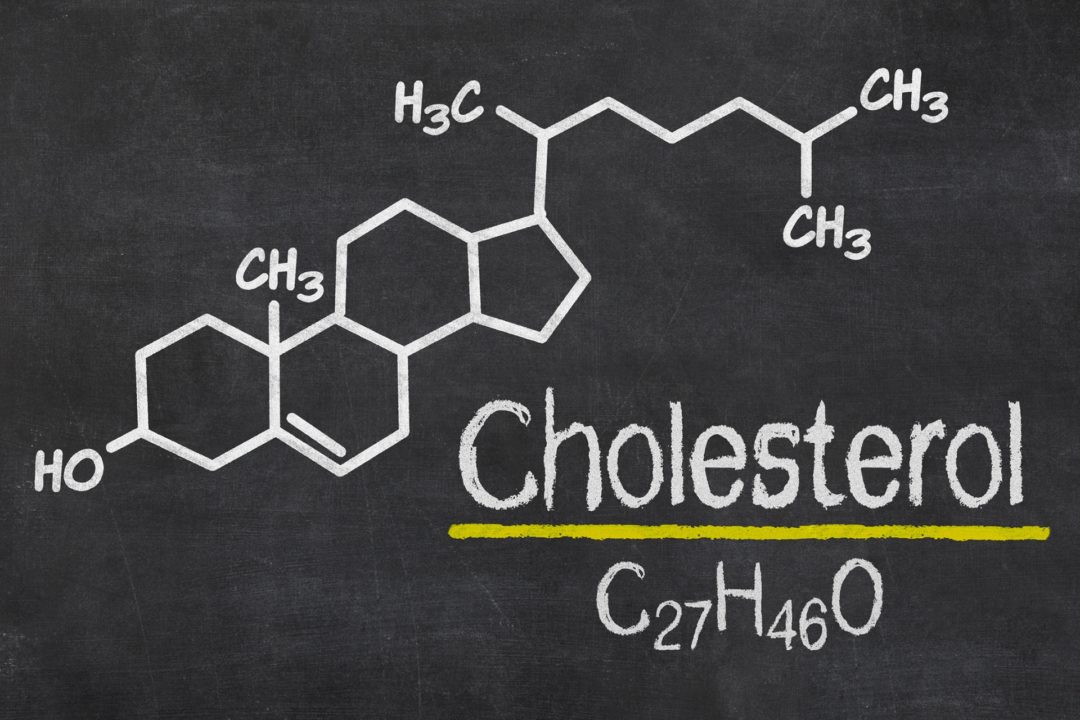Luckily, LDL cholesterol can be controlled whether it is hereditary or caused by lifestyle choices. The following guidelines can be used to support your overall health with a focus on cholesterol control.
Foods to AvoidEating foods high in LDL cholesterol is very common, but should be avoided for optimal health. Foods high in saturated fats increase bad cholesterol. Some of these foods include butter, full-fat cheeses and milk, fatty and processed meats, cakes, milk chocolate and even some yogurts contain saturated fats (2).
Fast-food contains many saturated fat ingredients. The oils fast-food restaurants use can add to the already unhealthy meals they serve. Cooking your own food gives you the knowledge of what’s going into your meals and the control over which fats make it into your diet.
Foods to ConsumeTo support healthy cholesterol levels, what you eat is just as important as what you try to avoid. Soluble fibers are excellent in reducing LDL levels as they block the absorption of cholesterol (3). Soluble fibers can also be more effective than consuming a diet low in saturated fat and trans-fat alone (4). Luckily, soluble fibers can be found in an array of foods, touching on many food groups. Soluble fibers can be found in oats, fruits (mangos, grapefruits, apricots), vegetables (brussels sprouts, asparagus, sweet potatoes), and even flaxseeds are effective against the absorption of cholesterol (3).
Totally avoiding all fats isn’t the goal for cholesterol support. Incorporating foods that are high in unsaturated fats is the key. Adding salmon, tuna, avocados, nuts, seeds and olive oil into your diet is a great way of incorporating unsaturated fats to your meals without compromising taste (5). Omega-3s should also be introduced to your diet. Other sources of omega-3s are chia seeds, walnuts, and spinach. Besides food sources, there are a number of omega-3 dietary supplements such as fish oil, krill oil and flax seed oil.
ExercisePhysical activity is an essential part of any diet or lifestyle, and it can greatly impact high LDL cholesterol levels. On the Centers for Disease Control (CDC) website, the Surgeon General recommends 2 hours and 30 minutes of moderate exercise per week (6). This includes activities such as light walking or bicycling. Regular exercise reduces the amount of cholesterol that circulates in the blood (7). This is vital for maintaining a healthy heart and avoiding heart ailments that are many times bred from high LDL cholesterol levels.
Exercise can be found in every part of your day simply by making the choice to walk or ride a bike instead of driving, taking stairs instead of elevators or even do some stretching before work and bed. Including these seemingly miniscule activities in your day in addition to 30 minutes of daily physical exercise will not only help you maintain healthy cholesterol levels, but can help you lose weight as well.
Supplements to Look Out ForOf course, after exercising and eating healthier foods, adding a supplement may also help control one’s cholesterol. Omega-3 supplements, mentioned previously, are quite popular for heart health, but for cholesterol support the Mayo Clinic also suggests trying out niacin (nicotinic acid), also known as vitamin B3 (8). Niacin, according to the University of Maryland Medical Center, has been used since the 1950s to lower elevated LDL cholesterol and triglyceride levels in the blood (9). Additionally, studies on green tea supplements have shown polyphenols and catechins may help block LDL cholesterols from being absorbed and also removes them from the body (10, 11). Before adding or making changes, it is important to first speak with a doctor to see if any supplement will fit well with one’s diet.
Avoid Bad HabitsUnhealthy lifestyle habits can impact your cholesterol even if you maintain a healthy diet. According to the CDC, cigarette smoking “damages your blood vessels, speeds up the hardening of the arteries, and greatly increases your risk for heart disease,” (6). Not only does this lead to unhealthy levels of bad cholesterol, but it can also lead to coronary heart disease, a condition that can cause heart attacks or fatalities.
Heavy consumption of alcohol can also have an effect on cholesterol. A study conducted by the Japan’s Hyogo College of Medicine concluded that heavy drinkers have higher cholesterol and triglyceride levels than those who didn’t drink heavily (12). Quitting smoking and lessening the consumption of alcohol can improve your overall health and cholesterol levels.
References
- American Heart Association, “Good vs. Bad Cholesterol,” http://www.heart.org/HEARTORG/Conditions/Cholesterol/AboutCholesterol/Good-vs-Bad- jsp#.WOPYxIWcFPY, Accessed April 4, 2017.
- Heart UK, “Low Cholesterol Diets and High Cholesterol Foods,” https://heartuk.org.uk/cholesterol-and-diet/low-cholesterol-diets-and-foods, Accessed April 4, 2017.
- Healthy Eating, “Best Sources of Soluble Fiber from Natural Foods,” http://healthyeating.sfgate.com/sources-soluble-fiber-natural-foods-2125.html, Accessed April 4, 2017.
- American Heart Association, “Whole Grains and Fiber,” http://www.heart.org/HEARTORG/HealthyLiving/HealthyEating/HealthyDietGoals/Whole-Grains-and-Fiber_UCM_303249_Article.jsp#.WOO5VoWcFPY, Accessed April 4, 2017
- NHS, “Lower Your Cholesterol,” http://www.nhs.uk/Livewell/Healthyhearts/Pages/Cholesterol.aspx, Accessed April 4, 2017
- Centers for Disease Control, “Preventing or Managing High Cholesterol: Healthy Living Habits,” https://www.cdc.gov/cholesterol/healthy_living.htm, Accessed April 4, 2017.
- Club Red, “Exercise Can Help Reduce Cholesterol Levels- and Your Risk of Stroke,” http://clubreduva.com/fitness/exercise-can-help-reduce-cholesterol-levels-and-your-risk-of-stroke/, Accessed April 4, 2017.
- PubMed, “Inverse Association Between Triglycerides-to-HDL-Cholesterol Ratio and Alcohol Drinking in Middle-aged Japanese Men,” https://www.ncbi.nlm.nih.gov/pubmed/23036219, Accessed April 4, 2017.
- Mayo Foundation for Medical Education and Research, “Cholesterol-lowering supplements may be helpful,” Oct. 3, 2015, http://www.mayoclinic.org/diseases-conditions/high-blood-cholesterol/in-depth/cholesterol-lowering-supplements/art-20050980, Accessed Apr. 21, 2017.
- University of Maryland Medical Center, “Vitamin B3 (Niacin),” Aug. 6, 2015, http://www.umm.edu/health/medical/altmed/supplement/vitamin-b3-niacin, Accessed Apr. 21, 2017.
- Zheng, XX et al. 2011. Green Tea intake lowers fasting serum total and LDL cholesterol in adults: a meta-analysis of 14 randomized controlled trials. The American Journal of Clinical Nutrition, 94 (2):601-10. Available: https://www.ncbi.nlm.nih.gov/pubmed/21715508
- Kim, Amie et al. 2011. Green Tea Catechins Decrease Total and Low-Density Lipoprotein Cholesterol: A Systematic Review and Meta-Analysis. Journal of the Academy of Nutrition and Dietetics, Volume 111, Issue 11 , 1720 – 1729. Available: http://www.andjrnl.org/article/S0002-8223(11)01379-4/pdf










